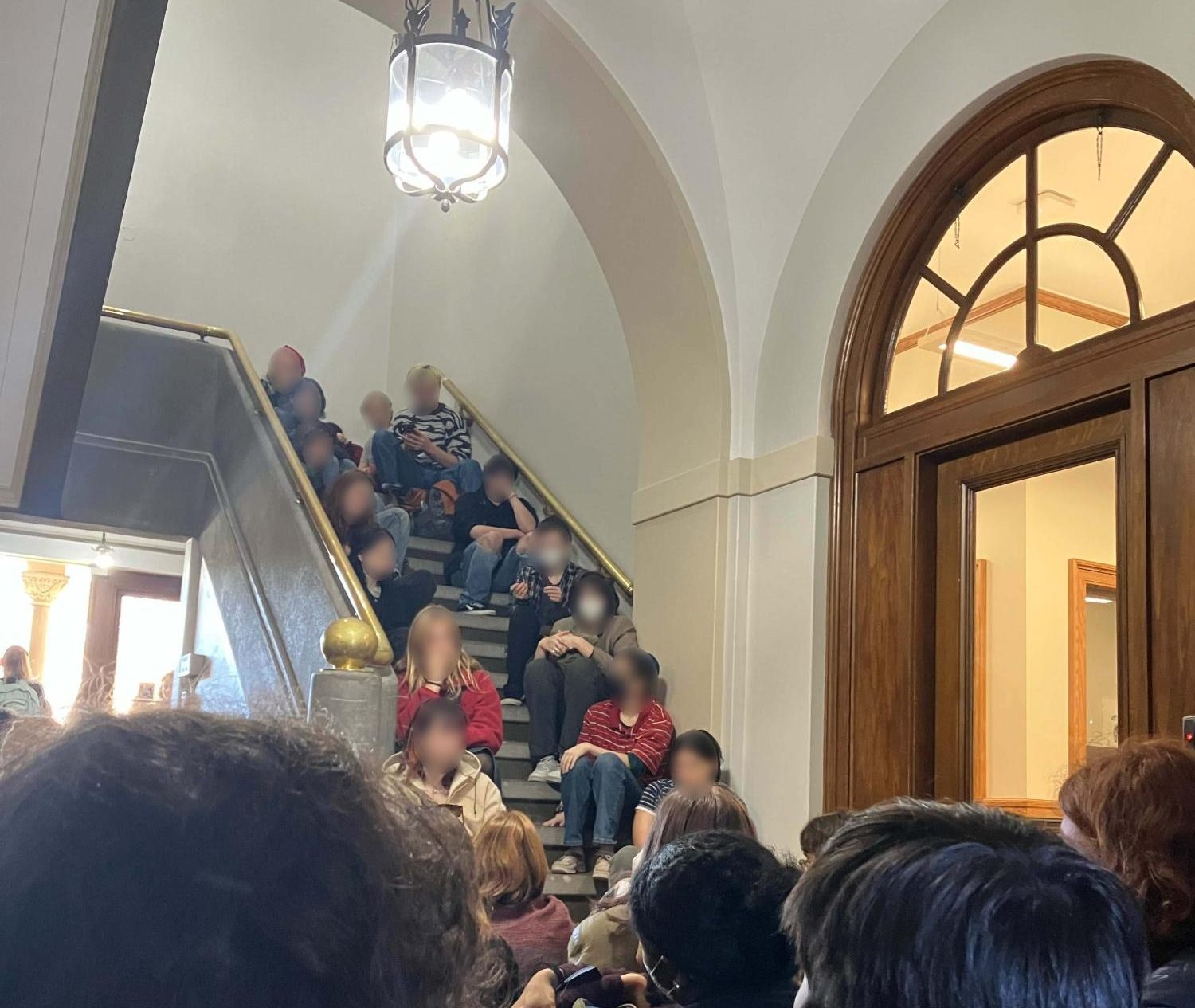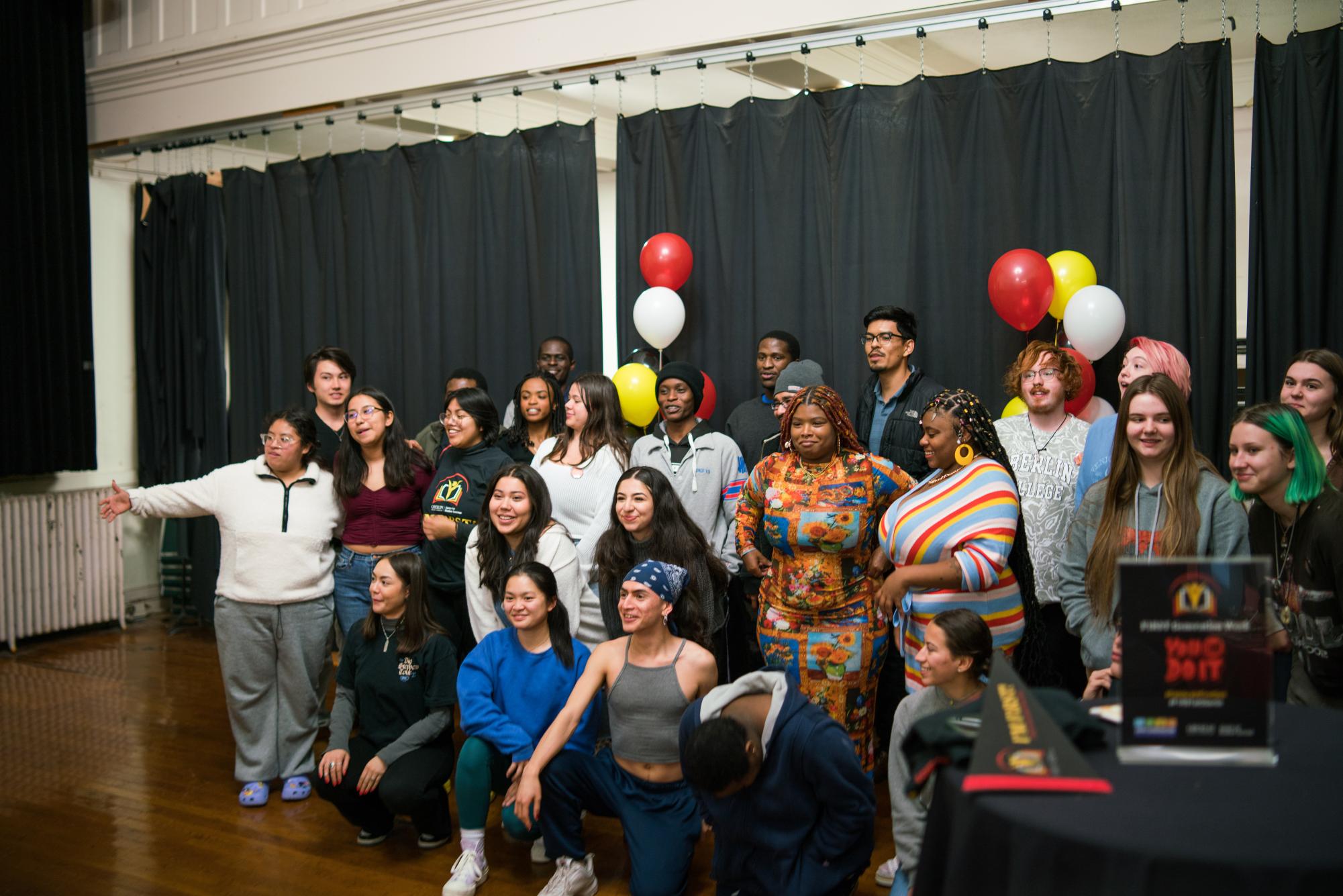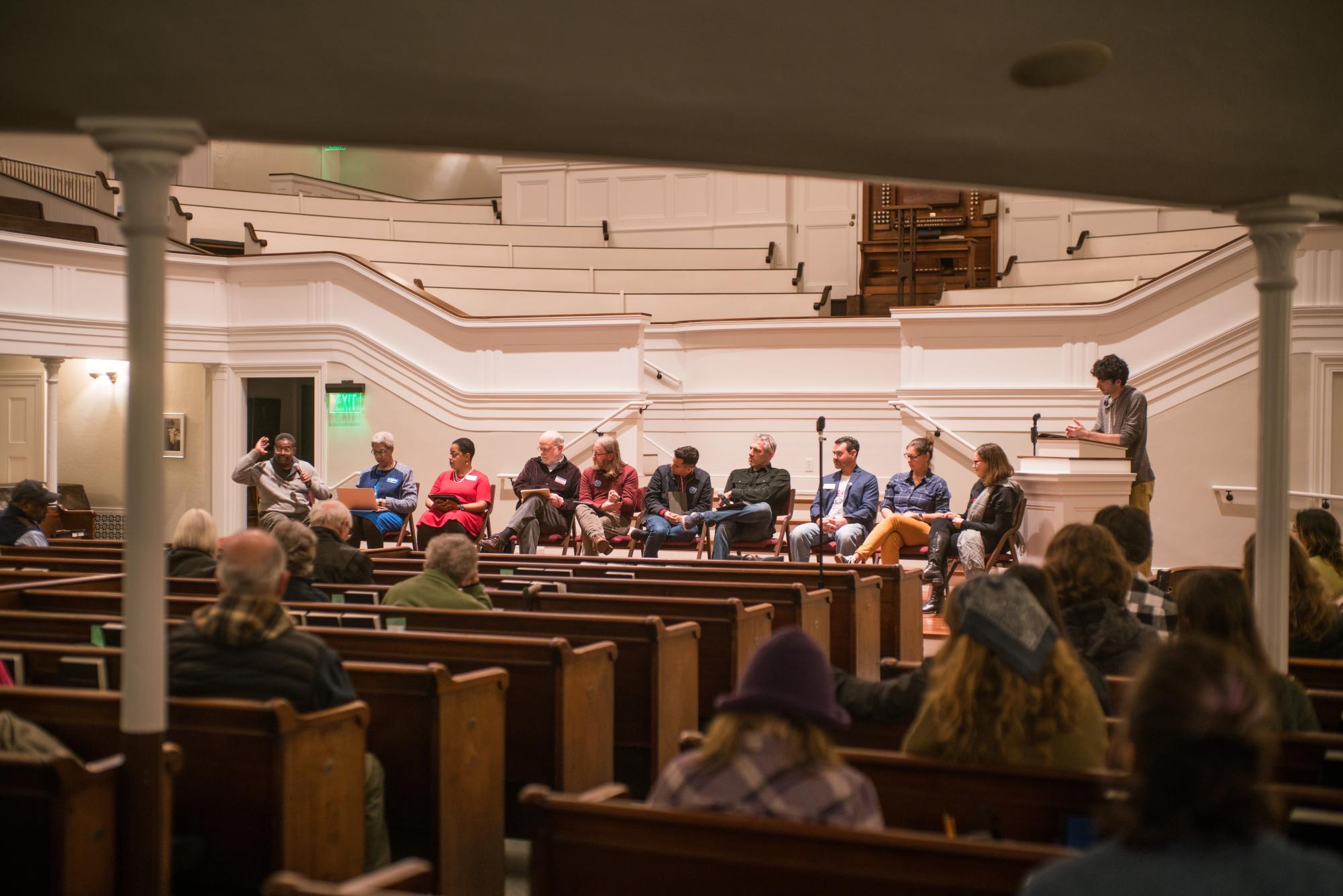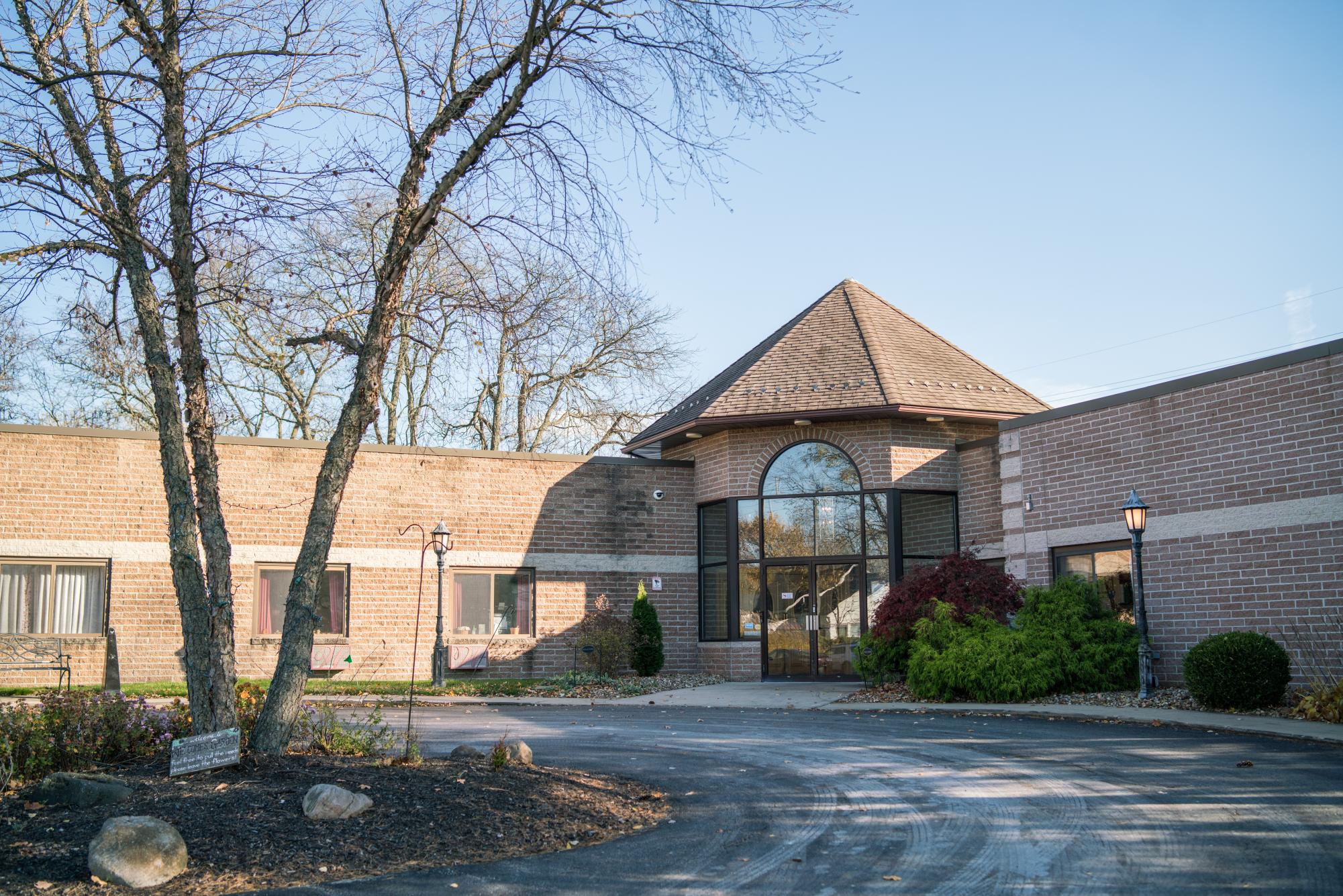College No Longer Employs ResEd Staff Member Following Offensive Facebook Comment
After a contentious Facebook comment posted by a Residential Education staff member surfaced in early June, students, alumni, and others called for the employee’s termination through a petition to College administrators. Though the College cannot comment on the employment status of its staff, by mid-June the employee’s name no longer appeared on the Oberlin campus directory.
The Facebook comment was made by Administrative Assistant Norma Frasher in reference to the May 25 murder of George Floyd.
“Yeah, & IF some people would SHUT their mouths & follow the RULES that EVERYONE else complies with they WOULDN’T get a Knee to the Neck,” the comment read.
Many of Frasher’s critics felt that her comment showed ignorance of racial injustice by implying that Black Americans only experience police brutality when breaking the law, and further, by justifying the use of deadly force.
Frasher’s comment was initially discovered by Marlon Reed, a Warren, Ohio resident who is unaffiliated with the College. Reed posted screenshots of Frasher’s comment alongside a screenshot of her LinkedIn profile that displayed her position at Oberlin College.
“Imagine someone being in that position that has the views she does and tell me if you feel she can do her job effectively and equally?” Reed wrote in a message to the Review. “To me it mattered to expose her because, not only does that comment speak to what I believe is a deeper issue she has with people of color, but it also shows her level of ignorance as it pertains to the injustices done to unarmed and non-threatening black men and women by law enforcement.”
Reed’s post was shared over one thousand times on Facebook and immediately gained attention from members of the Oberlin community and beyond, generating widespread calls for the College administration to fire Frasher.
President Ambar sent a statement explaining the College’s stance on Frasher’s comment in response to emails from concerned individuals. Ambar’s statement also addressed the comment’s circulation on the heels of the May 31 announcement of a Presidential Initiative to educate and mobilize students against racial injustice.
“Her comments are offensive and are not reflective of Oberlin’s values,” Ambar wrote. “As you know, I wrote recently to our entire community about the impact George Floyd’s death has had on me personally, as a black woman, and on the entire African-American community. … The President’s Initiative I announced represents the values of our institution. I refuse to let one person’s comments dissuade us — or Oberlin — from our collective mission. It would not be appropriate for me to promise you a particular outcome, but I assure you that I am taking this matter seriously.”
Frasher was a member of the Oberlin College Office of Professional Employees union. If the College decided to pursue disciplinary action or terminate Frasher’s employment, they would have gone through the union’s official process. This process can take several weeks and is entirely confidential, so the College cannot comment as to whether this route was taken.
“The College responded promptly and took appropriate action based on a review of the events,” Vice President and Dean of Students Meredith Raimondo wrote in an email to the Review. “Personnel issues are confidential, and for members of bargaining units, subject to the requirements of the collective bargaining agreement. Although I understand the wish for more specific information, providing it in the face of such requirements could hamper the College’s ability to take appropriate action.”
The lack of public action from the College resulted in continuous demands for Frasher to be fired. A student-led petition for Frasher’s termination gained over 1,000 signatures from students, alumni, and parents. In addition to asking for Frasher’s dismissal, the petition highlighted the lack of support Oberlin has shown for its students of color.
“For the safety of Black people at Oberlin this woman should be removed from this position,” the petition reads. “This comment not only shows ignorance on behalf of [the] Oberlin College community, but suggests the lack of effort Oberlin made to ensure that the staff provides a safe environment for its Black community members. This message not only identifies one of the many flaws in Oberlin’s institution, but also brings awareness to the lack of support students of color have received during this hard time.”
Chief Human Resources Officer Joe Vitale addressed complaints from students who believed the College was slow to respond to the situation.
“The College, or really, most employers, are going to act very deliberatively,” Vitale said. “Anything that is concerning folks — be it students, fellow employees, what have you — is going to be a concern of the College as well. But the College is going to want to make sure that we go through it thoroughly, have a full understanding of the issue, the context, its validity, and that work doesn’t happen overnight. I could see how this process could appear [to] be drawn out.”
Vitale also spoke to the role of student-led petitions in such processes, stating that the amount of public attention to a Department of Human Resources concern does not determine the department’s attention to such an issue.
“We have to consider what’s occurred — is it a violation of our policies or the person’s job in some way? — and deal with that individual one-on-one as quickly as we can,” Vitale said, “whether it’s one person who came to us or a thousand.”
However, Raimondo feels that employment-related petitions have the potential to complicate the College’s process for addressing HR concerns. According to Raimondo, petitioners sometimes advocate for prompt action based on a restricted understanding of information that employers are required to keep confidential.
“Such petitions may undermine an employee’s right to fair process in employment actions leaving the employer potentially unable to take action,” Raimondo wrote. “Additionally, because personnel issues are private, there are almost invariably facts that cannot be publicly shared and which make it hard for petition signers to have a complete and accurate understanding of the situation. Finally, in the age of social media, petitions can mean a rush to judgement based on distortions and bad information, which I do not believe serves the cause of racial justice. There are complex issues related to speech that I do not think such petitions allow a community to examine.”
According to Reed, the question of where to draw the line with freedom of speech was what led him to expose Frasher’s comments in the first place.
“People seem to misunderstand the phrase freedom of speech,” Reed wrote. “Yes we are all able to say whatever we want, but that doesn’t mean we are free from the consequences of those words. That is where a lot of these people you see that [are] losing their jobs fall short every time. The things you do and the words you say will always have consequences. Good or bad. … They all need to be made examples of and I’ll continue to use my platform in doing just that.”
Frasher did not respond to requests for comment.






